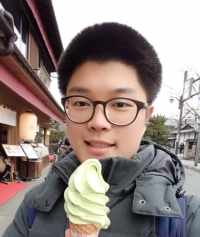If Koreans were asked, “Are you happy with your life?” what response would they give? These days, social problems have been increasing, and every generation goes through difficult situations. Koreans seem to be very far from happiness, considering the country has the top-ranking for suicides. In fact, the World Happiness Report (2019), which annually estimates the happiness of each country, says among the 154 OECD nations, Korea is ranked 54th. What is the reason of the low happiness rating, given that Korea has greatly improved economically? The Pharos investigated this issue using the World Happiness Report (2019).
According to the 2019 report, there are three huge categories that affect the happiness index: government, prosocial behavior and information technology. In these three categories, the core factors of happiness are also divided specifically, and they together decide the individual happiness index score. Let’s examine the government category first. There are six core factors here: GDP per capita, social support, healthy life expectancy, freedom, generosity and absence of corruption. The 54th happiness ranking introduced above is estimated in part by determining scores for these six factors. Thus, according to the report, the more income you get, the more social support you have, the longer you sustain a healthy life, the more freedom you are guaranteed for making choices in your life, the more time or money you spend for society and the less corruption of government you witness, the happier you are. In addition, the researcher found that the more one feels happy, the more interest in politics and elections one has. The next category is prosocial behavior. In this part, the most important criterion is “How much do you return to society?” The report states that volunteer work and donating to society are closely related to one’s happiness. The information technology part of the report focuses on the correlation between the amount of time spent on the Internet and happiness. Since smartphone and other electronic device use become widespread, the amount of time spent using the Internet has vastly increased, while sleeping hours have decreased along with the quality of sleep. Moreover, people do not interact with others actively face to face as much as before. One important observation is that the individual happiness index has decreased as Internet use has increased.
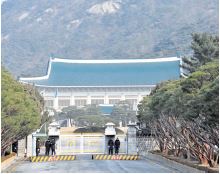
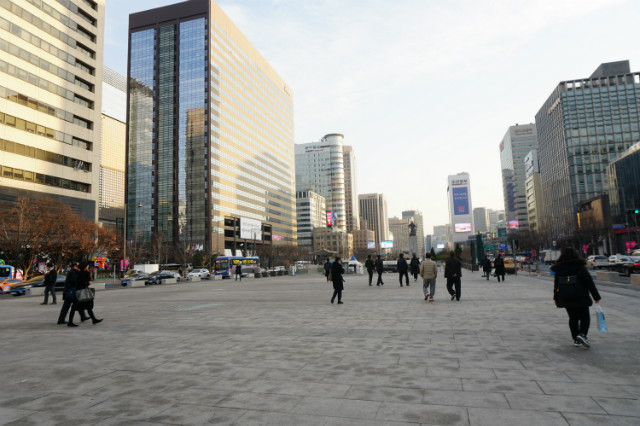
To find out about the happiness level of Kyonggi University’s students, the Pharos decided to concentrate on students’ social activities, hours of using electronic devices, satisfaction with government welfare and their individual level of happiness. Among the students who participated in the survey, those who were doing charity or volunteer work were less than the average number of students in the survey. On the other hand, those who use electronic devices for more than six hours a day were more than the average number of students in the survey. The majority of students in both of the previous areas gave high scores with regard to their satisfaction with the government’s welfare support and their level of individual happiness. According to the World Happiness Report (2019) statistics, a country’s happiness index was higher when people had greater pro-social tendencies, such as doing charity and doing volunteer work and when many people had higher levels of satisfaction with government welfare support. In contrast, it was indicated that people’s happiness is higher when electronic devices are used for less than six hours a day. However, a survey of students at Kyonggi University showed that doing charity and volunteer work and using electronic devices for more than six hours does not have a significant impact on individual happiness. In the survey above, the biggest contributory element to students’ happiness was their satisfaction with government welfare support. The more positive students were about aspects of government welfare programs, the happier they were on average. Students’ level of happiness was not higher when they described both positive and negative aspects. On the other hand, when the more negative aspects were described only or when the critical opinions were only about government welfare, students were less happy. Specifically, students gave positive opinions about government welfare support for state scholarships, compulsory education and medical insurance. On the negative side, they expressed the view that they are suffering because of the meager old age pension, blind spots in welfare support, and difficulties in finding jobs and houses. In the survey, the majority of students had a higher personal happiness index score than the satisfaction score for the government’s welfare support. This shows that individual wellbeing is affected by various circumstances in addition to the factors presented above.
To understand how the people of the Republic of Korea can be happier than at present, the Pharos searched for the differences in happiness between South Korea and other countries such as Australia and Singapore with similar economic and climate conditions, but higher happiness index ratings. Let’s find a way forward for our country by contrasting the three countries. The three countries have a temperate climate and are economically advanced, but their happiness index scores are not the same. Australia’s happiness index rating is 11th, Singapore’s is 34th, and South Korea’s happiness index rating is 54th. There are a total of six items to examine: national per capita income, social support, life expectancy, freedom to determine life choices, benevolence and perspective about corruption. Singapore has the highest GDP, while Australia and Korea have similar figures. There is not much difference between Australia and Singapore in social support, but they show an overwhelmingly higher degree than our country. Singapore is the highest in life expectancy, whereas Australia and Korea show no difference. In terms of freedom, benevolence and perspective about corruption, Australia and Singapore have a high percentage, while Korea has a low percentage. The common point of the two countries except for South Korea is that the factors such as social support, freedom, benevolence and perspective about corruption show a high score. These results show that the our nation needs to foster and strengthen social support, freedom, benevolence and critical views about corruption.
According to a reliable international indicator, the world Happiness Report, the happiness level of the Republic of Korea on average is high, but it is lower than other OECD countries. For the individuals of each nation to be happy, it is important not only to make an individual effort, but also for the nation to support its people socially. Polarization, in which one area is more influential than an other, is never the way for individuals or society to be happy. In other words, our society can be happy only when there is harmony between individual contributions and the government's welfare policies. We should not be frustrated by the results in front of us, but rather should seek directions and practices to increase the happiness of individuals and society.
71st Reporter•PARK SINUI•dean0305@naver.com
74th Cub Reporter•GONG JINYOUNG•wlsdud03520@naver.com
 Freedom Given to Youth: An Opportunity for Choice or a Burden of Constraint?
“Are we truly free today?” Classical literature is far more than time-honored stories. It offers profound insights into human nature and society that transcend time, remaining a valuable resource for examining the challenges our world faces today. This article will draw on George Orwell’s 1984 and Charles Dickens’ Oliver Twist to explore the contemporary issues of youth housing and the emergence of a surveillance society ...
Freedom Given to Youth: An Opportunity for Choice or a Burden of Constraint?
“Are we truly free today?” Classical literature is far more than time-honored stories. It offers profound insights into human nature and society that transcend time, remaining a valuable resource for examining the challenges our world faces today. This article will draw on George Orwell’s 1984 and Charles Dickens’ Oliver Twist to explore the contemporary issues of youth housing and the emergence of a surveillance society ...

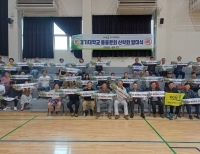 [단신] 산악회, 본교 동문의 버팀목이 될 수 있도록
[단신] 산악회, 본교 동문의 버팀목이 될 수 있도록
 [사회메인] 노인 인구 1,000만 시대, 준비 없는 사회가 불안해
[사회메인] 노인 인구 1,000만 시대, 준비 없는 사회가 불안해
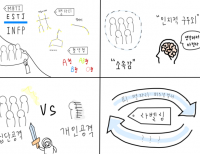 [네컷만화] 라벨링 문화
[네컷만화] 라벨링 문화
 [진리터] 결국 우리 모두 돌아볼 것이니
[진리터] 결국 우리 모두 돌아볼 것이니

 목록
목록






